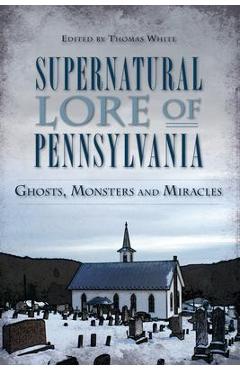Witches of Pennsylvania: Occult History & Lore - Thomas White

Detalii Witches of Pennsylvania: Occult History
libris.ro
133.87 Lei
148.74 Lei
Body, Mind & Spirit
Thomas White
Witches of Pennsylvania: Occult History - Disponibil la libris.ro
Pe YEO găsești Witches of Pennsylvania: Occult History de la Thomas White, în categoria Body, Mind & Spirit.
Indiferent de nevoile tale, Witches of Pennsylvania: Occult History & Lore - Thomas White din categoria Body, Mind & Spirit îți poate aduce un echilibru perfect între calitate și preț, cu avantaje practice și moderne.
Preț: 133.87 Lei
Caracteristicile produsului Witches of Pennsylvania: Occult History
- Brand: Thomas White
- Categoria: Body, Mind & Spirit
- Magazin: libris.ro
- Ultima actualizare: 28-10-2025 01:22:05
Comandă Witches of Pennsylvania: Occult History Online, Simplu și Rapid
Prin intermediul platformei YEO, poți comanda Witches of Pennsylvania: Occult History de la libris.ro rapid și în siguranță. Bucură-te de o experiență de cumpărături online optimizată și descoperă cele mai bune oferte actualizate constant.
Descriere magazin:
Since William Penn presided over the state\'s only official witch trial in 1684, witchcraft and folk magic have been a part of the history of the Keystone State. English and German settlers brought their beliefs in magic with them from the Old World--sometimes with dangerous consequences. In 1802, an Allegheny County judge helped an accused witch escape an angry mob. Susan Mummey was not so fortunate. In 1934, she was shot and killed in her home by a young Schuylkill County man who was convinced that she had cursed him. In other regions of the state, views on folk magic were more complex. While hex doctors were feared in the Pennsylvania German tradition, powwowers were and are revered for their abilities to heal, lift curses and find lost objects. Folklorist Thomas White traces the history and lore of witchcraft and the occult that quietly live on in Pennsylvania even today. Since William Penn presided over the state\'s only official witch trial in 1684, witchcraft and folk magic have been a part of the history of the Keystone State. English and German settlers brought their beliefs in magic with them from Since William Penn presided over the state\'s only official witch trial in 1684, witchcraft and folk magic have been a part of the history of the Keystone State. English and German settlers brought their beliefs in magic with them from Since William Penn presided over the state\'s only official witch trial in 1684, witchcraft and folk magic have been a part of the history of the Keystone State. English and German settlers brought their beliefs in magic with them from Since William Penn presided over the state\'s only official witch trial in 1684, witchcraft and folk magic have been a part of the history of the Keystone State. English and German settlers brought their beliefs in magic with them from Since William Penn presided over the state\'s only official witch trial in 1684, witchcraft and folk magic have been a part of the history of the Keystone State. English and German settlers brought their beliefs in magic with them from Since William Penn presided over the state\'s only official witch trial in 1684, witchcraft and folk magic have been a part of the history of the Keystone State. English and German settlers brought their beliefs in magic with them from Since William Penn presided over the state\'s only official witch trial in 1684, witchcraft and folk magic have been a part of the history of the Keystone St

Produse asemănătoare

Witches of Pennsylvania: Occult History & Lore - Thomas White
![]() libris.ro
libris.ro
Actualizat in 28/10/2025
133.87 Lei
Produse marca Thomas White

Strong and Courageous: Timeless Truths to Conquer Fear, Crush Anxiety, and Defeat Despair in an Uncertain World - Thomas White
![]() libris.ro
libris.ro
Actualizat in 28/10/2025
156.17 Lei

Supernatural Lore of Pennsylvania: Ghosts, Monsters and Miracles - Thomas White
![]() libris.ro
libris.ro
Actualizat in 28/10/2025
133.87 Lei

Witches of Pennsylvania: Occult History & Lore - Thomas White
![]() libris.ro
libris.ro
Actualizat in 28/10/2025
133.87 Lei
